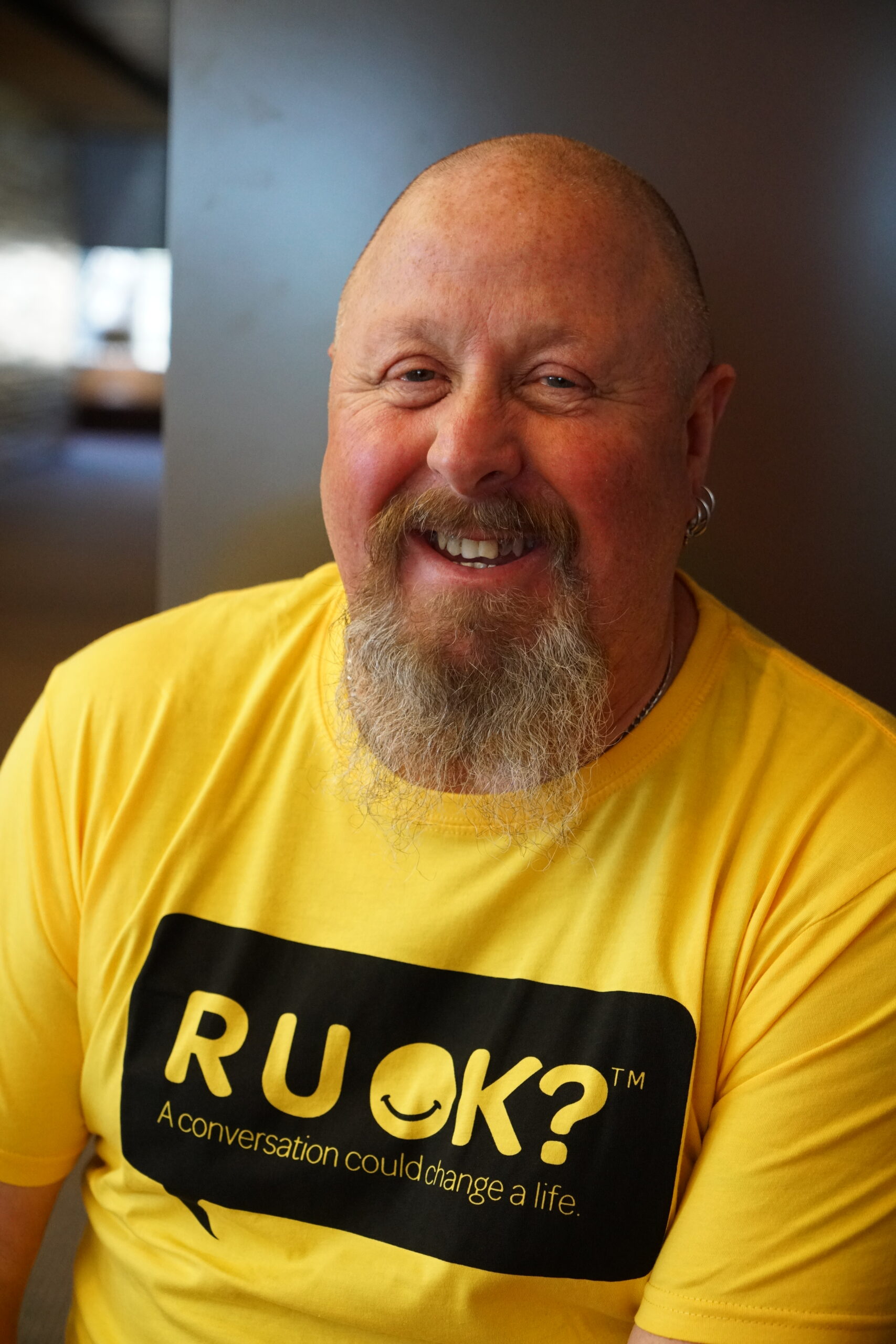
Meet Glenn
R U OK in Trucks & Sheds
Glenn, 65, spent more than 30 years driving trucks around the Far South Coast of NSW and working in purchasing, logistics and materials management for warehouses. His career brought many challenges, including regular twelve-hour day trips, sometimes through the winter snow. Glenn’s work and personal struggles were exacerbated when he didn’t receive the support he needed from his manager, which is why he is now passionate about encouraging supportive conversations in the road transport, warehousing and logistics industry.
Driving trucks and working in warehousing is more intense than people realise. You spend a lot of time on your own which can make shifts feel longer, you’re on very tight schedules that are often impacted by unforeseeable delays, and you drive in ridiculous weather at times. During snow season, I would have to put chains on my wheels and drive 20km up the mountains, often wondering if I would make it through. It wasn’t uncommon for a ten-hour day to become thirteen hours due to road and weather issues.
After several years the long drives became too much for me, so I opened up to my manager about feeling fatigued. I suggested we share the load or split shifts with some of the younger blokes at work. I was taken back by his response. He essentially said, ‘So you’re telling me you can’t do your job?’. My confidence was shot after that, and I retired earlier than I would have liked to.
It takes a lot for a man to share his struggles, particularly in our industry. My career spanned from the eighties through to 2013, when there was a ‘harden up’ mentality in the workplace. Most people kept things to themselves because if you spoke up about doing it tough, you were considered a whinger or incapable of doing your job – and no one wanted to risk losing their income. But the reality is – we all face stress in life, and while it isn’t always work-related, we spend a decent amount of time at work, so it needs to be a safe place where we can talk about our challenges. Managers are in powerful positions, and their words can build someone up or bring them down.
I slipped into a dark hole when I retired. At the time my wife was dealing with a chronic illness, and I felt I wasn’t fulfilling the role society tells men they should fill – ‘the bread winner and provider’. That same year my eldest brother died. He was my go-to for everything, so I lost my key support person. I bottled it all up for five years, but the cracks were showing. My wife and I struggled financially, and our relationship was strained.
What turned things around was a simple conversation. One of my mates would regularly ring me to check in and have a chat. Every time he asked if I was alright, I’d reply ‘yes’, on autopilot. One time he phoned, he mentioned I didn’t show up to something and he hadn’t seen me around a lot lately (small towns make it easy to notice absence). He dug deeper and it made me pause. I couldn’t lie anymore, so I said, ‘I’m actually not OK, I need some help.’ He didn’t make a fuss, he just said ‘how about I come and get you and we go for a coffee?’ Over coffee I got everything off my chest. He didn’t interrupt me or tell me what I should do, he just listened. It was exactly what I needed to work out how to get myself out of the hole I was in.
I’m confident that conversation saved my life.And it’s why I am so passionate about encouraging everyone, particularly managers and colleagues, to check in with each other. If someone isn’t OK, you don’t need to have the answers, you just need to listen and let them know you care. Men and women working in the transport industry spend a lot of time away from their families, and even more time alone. Their workplace is their second family. So, it’s important everyone knows how to spot the signs a colleague isn’t OK and is confident starting and continuing a conversation. That’s exactly what R U OK? In Trucks &. Sheds is about.
I often think back to the chat I had with my manager and wonder how things could have been different, or what he could have said that may have helped. I think all I wanted was to be heard and to know that it was OK to be feeling the way I was. Having challenges in life doesn’t mean you can’t do your job, it means you’re human. And being in a workplace that acknowledges the ups and downs of life is only going to help staff thrive personally and professionally. It’s a no brainer.




